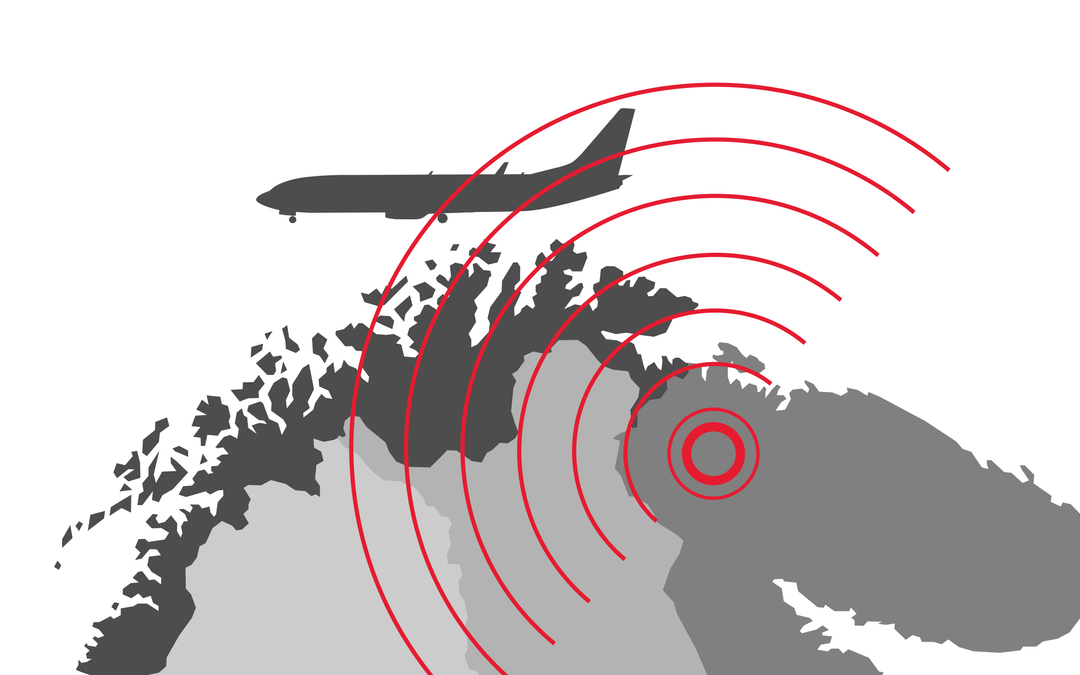Image: Lotte Camillia Holst Hansen, NRK
The report was completed on the 19th of December 2019. With the speed of government, it was reviewed, approved and finally posted for public viewing on the 18th of December 2020.
Titled “GNSS/GPS Disruptions in Aviation,” the report by a Norwegian working group also offers some familiar comments on the essentiality of GNSS/GPS, as well as a number of insights into Norwegian and European thinking and plans for transportation.
It repeatedly discusses the criticality and vulnerability of GNSS services:
It has gradually been recognised that GNSS systems are vulnerable, with a high risk of serious consequences for society in the event of a signal outage…
A serious failure in the PNT services will spread to other parts of society and may cause problems in maintaining services on which the population depends. PNT system failures can occur for reasons including disruption of GNSS signals.
The report also documents how, despite this, the west is becoming increasingly dependent on GNSS. For example:
Despite the development in disruptions of GPS signals in aviation, the EU continues to emphasise the use of satellite-based systems in all modernisation and digitalisation in aviation in the years to come. (EC IR 1048/2018)
Norway, especially Norwegian aviation in the far north, is particularly dependent upon GNSS. Despite its findings, the report offers surprisingly little in terms of proposed action other than continued monitoring and diplomacy.
In fact, it declares that diplomacy with Russia is the solution.
Russia repeatedly jammed GPS in northern Norway for years, including during NATO’s 2018 Trident Juncture exercise. In February 2019 Norwegian officials held a diplomatic meeting with the Russian military to protest and discuss the matter. The jamming then stopped. This led the report to say:
Since this meeting and until the finalisation of this report on 19 December 2019, no GPS disruptions have been registered in Norwegian airspace over Finnmark county. If, contrary to expectation, similar problems should occur in the future, this experience shows that we have both military and diplomatic communication channels available that permit such problems to be addressed.
Unfortunately, shortly after the report was completed, GPS in northern Norway was being jammed again.
Allan Klo 19 April 2020
Powerless against GPS interference
Once again, jamming of GPS signals has created challenges for civil aviation in eastern Finnmark. The Norwegian authorities have repeatedly addressed the problems of the alleged culprits – Russia – without helping.
Despite this jamming, Norway’s group of State Secretaries approved the report as it was on the 6th of May 2020.
Political Context
The Norwegian government is in a politically tight spot on this. As a staunch member of the European Space Agency, Norway’s leaders have devoted tens of millions of dollars to the Galileo GNSS project.
And in 2015, to show loyalty to the Galileo effort, they shut down the nation’s Loran system. This despite warnings from internal security experts about GNSS vulnerability, increasing jamming and spoofing, and the desirability of maintaining sovereign, exceptionally difficult-to- disrupt PNT.
Norwegian officials also ignored observations that Russia was keeping its Loran system to use alongside satellite systems, and pleas from the UK to keep some of the Norwegian stations on line to enable its new precision e-Loran network.
Perhaps the actions of Norway’s politicians were to be expected. After all, the United States had shut down its Loran system in 2010 to show loyalty to GPS. – Don’t you hate it when the U.S. sets a bad example that gets others in trouble?
Yet Norway has some advantages over the U.S. in this regard.
Norway is even more dependent on GPS/GNSS than America. And Norway has a neighbor that regularly reminds them of GNSS vulnerability, and that they can take the signals away with the flip of the switch. And, by the way, even if Norway were interested in doing the same thing to Russia, it wouldn’t have nearly the same effect because of the Russian Loran system.
We hope these things will eventually stir Norwegian leaders from their lethargy and set them on the path to establishing a terrestrial PNT system of their own.
Perhaps it will be an eLoran system like the one South Korea is building. South Korea’s system will cooperate and work with neighboring Russian Loran to provide users greater coverage and resilience. The Korean system will also be able to operate on its own and protect the nation during those times when Russia and other neighbors are not in a good mood.


